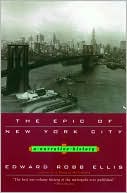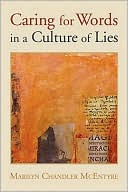"He Seen His Opportunities, and He Took ‘Em"
The Blessings and Curses of the Urban Political Machine
[Analytical Essay written for a college US History class]
 William L. Riordon’s Plunkitt of Tammany Hall compiles numerous talks that New York Senator, George Washington Plunkitt, gave in defense of his political career as a ward boss in the political machine known as Tammany Hall. While progressive reformers decried this urban political machine as a cancer on American democracy, Plunkitt presents the thesis that the machine’s existence is justified because it never participated in illegal activities and actually significantly helped the struggling working class immigrants. However, this claim proves vacuous when it is revealed that Tammany Hall was actually rank with corruption and probably did more harm than good for the people of New York City.
William L. Riordon’s Plunkitt of Tammany Hall compiles numerous talks that New York Senator, George Washington Plunkitt, gave in defense of his political career as a ward boss in the political machine known as Tammany Hall. While progressive reformers decried this urban political machine as a cancer on American democracy, Plunkitt presents the thesis that the machine’s existence is justified because it never participated in illegal activities and actually significantly helped the struggling working class immigrants. However, this claim proves vacuous when it is revealed that Tammany Hall was actually rank with corruption and probably did more harm than good for the people of New York City.Second, although Plunkitt vehemently denied that he owned one “dishonest dollar,” the political machine did grow rich on graft. Plunkitt attempted to make a distinction between honest and dishonest graft, but he could not redefine the term itself. Graft is the abuse of one’s position of public trust for personal gain. Plunkitt admitted that, while he never used his political position to levy “blackmail on disorderly houses” or rob “the city treasury,” he had gotten “tips” from the inside. In other words, once his party was in power, he would find out that they were going to undertake numerous public works, perhaps a park or a bridge. He would then buy up all the land that he could in that neighborhood, making a large profit when the demand for that land skyrocketed after the public work was implemented. Clearly, this was an abuse of his political position. In the end, those who originally owned the land were disadvantaged because they sold it for less than it was really worth.
Third, positions in Tammany Hall were often gained by corrupt means. Plunkitt denied that they would actually “sell nominations” and attempted to draw distinctions by insisting that “There’s no auction and no regular biddin’. The man is picked out and somehow he gets to understand what’s expected of him in the way of a contribution, and he ponies up—all from gratitude to the organization that honored him.” However, whichever way the money was acquired, it was still a corrupt practice. Essentially, Tammany Hall “arranged” the nomination – they knew who would pay them back for a favor and they acted accordingly. This undermined the whole process of a democratic government. Organizations should not put a person in office, as Plunkitt seemed to believe, but rather the informed voter. Indeed, the politician should be indebted to no one except the electorate.
Fourth, and finally, Plunkitt wished for a monopolization of the political system in New York City. He admitted that his fondest dream was of the city becoming its own state. He commented, “The people wouldn’t have to bother about nothin’. Tammany would take care of everything for them in its own quiet way.” This was the kind of talk that probably alarmed progressive reformers. Plunkitt’s vision would have transformed New York City into an oligarchy. Once the other political parties were ousted, there would be no reason for Tammany Hall to even try to provide favors for its constituents. As Plunkitt observed, the people would not have to partake in the political system. Ultimately, rule by and for the people would be abolished and transferred into the hands of a governing elite.
Thus, the progressive reformers were correct in their assessment that men like Plunkitt were a cancer on the American government. The machine’s practices were eliminating the vision of the founders of America that the voters would be sufficiently represented by the politicians. Instead, machines like Tammany Hall blurred the lines between honesty and corruption.
Yet, it is important to consider whether the machine did any good for the electorate and whether this good outweighs its corruption. Plunkitt commented on the numerous favors he performed for the struggling poor in order to purchase votes, observing “What tells in holdin’ your grip on your district is to go right down among the poor families and help them in the different ways they need help.” Clearly, Plunkitt was a major benefactor to these lower class citizens. Before the emergence of the nationalized welfare state, this could be seen as a form of localized welfare. Plunkitt would secure jobs for the immigrants or provide them assistance if they lost their house and belongings to a fire or had problems paying their rent. Further, the machine made sure that the lower class immigrant vote was valuable, often times in defiance of the racist policies of many other political platforms of that time period. Essentially, political machines had to be attentive to the desires of their constituents or they would lose their votes. Yet, while Plunkitt’s policies may have benefitted the poor economically, he could only accomplish this by ignoring the needs of the general populace. In the end, an uneven favoritism would be exhibited towards one section of the electorate (the immigrant and working class) at the expense of the other (the wealthy).
To conclude, then, it would be unfair to state that Plunkitt and his political machine Tammany Hall did no good for the people of New York City. Indeed, the poor gained a much needed friend and political ally. Plunkitt helped to awaken politicians to the needs of their constituents and, ultimately, personalized the electorate. Yet, while these were certainly benefits to the machine, they could not outweigh its corruption and threat to democracy. These seeming ‘benefits’ were not the ultimate goal of politicians like Plunkitt. Rather, as he stated, he saw politics as a “game” and he was “gettin’ richer every day.” Ultimately, then, while the poor may have benefitted in the short term, they had no long term security. They were simply pawns in the hands of the bosses of New York City, men who abused their positions to slowly erode the foundations of democracy.
Labels: book reviews, bookish musings, literary criticism
Posted by Nicole Bianchi at 3:45 PM
![]()



 This is life seen through the eyes of a writer. A blog that critically examines literature, music, and film. NB, initials which coincidently coinside with the Latin words "nota bene" (mark well), belong to the blog poster, a bibliophile who likes to haunt libraries and book stores, talk about all things bookish, and ramble at any length on things regarding literature. Many of the articles posted here were written as essays for high school and college.
This is life seen through the eyes of a writer. A blog that critically examines literature, music, and film. NB, initials which coincidently coinside with the Latin words "nota bene" (mark well), belong to the blog poster, a bibliophile who likes to haunt libraries and book stores, talk about all things bookish, and ramble at any length on things regarding literature. Many of the articles posted here were written as essays for high school and college.






0 Comments:
Post a Comment
<< Home